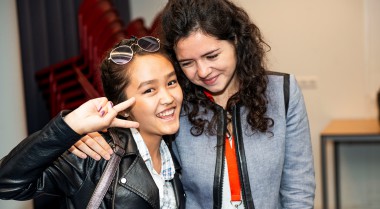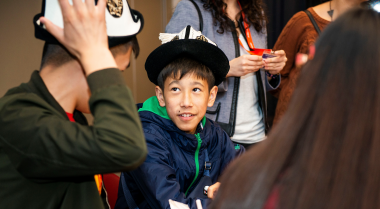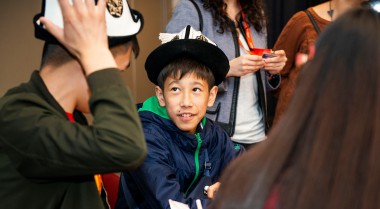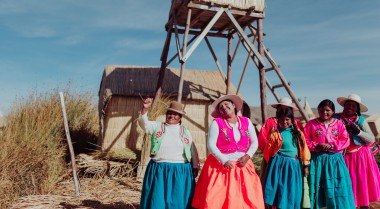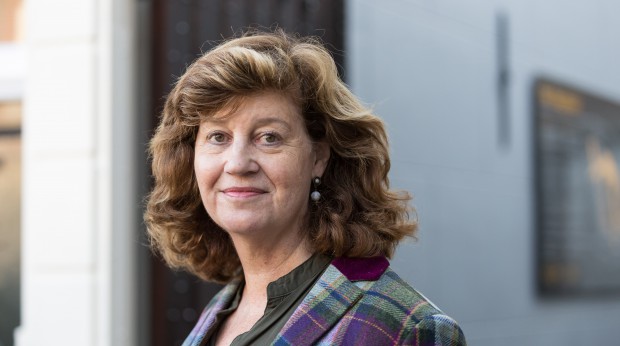
"Peacebuilding is not a dream or utopia": A young peacebuilder striving for peace in Mexico
Hailing from the city of Tuxtla Gutiérrez, Fabiola experienced a life of double marginalisation. Like many others, she faced the battle of growing up as a young woman in a conflict-affected area. Not knowing it was peace that she was seeking, she felt discontent with herself and her context - something needed to change.
In the Quest for Peace
Peacebuilding was not in the cards until Fabiola realised that not only she, but her entire surrounding lacked peace. Being protective of her, Fabiola’s family was not on board with her venture into peacebuilding. They did not fully comprehend the endeavours of being a young peacebuilder, especially in a rural region like Chiapas. In addition to convincing her family, Fabiola also had to prove her abilities to the outside world. It was challenging for her to be taken seriously as a local young peacebuilder, without being aligned with a foreign, international institution. Such power dynamics have also had a big impact on her as a young woman, as she shares:
“Many times in my job I have had to act more masculine in order to show that I am suitable for certain tasks, but at the same time I have been judged by doing so. Misogyny is very common, as well as “machismo” which is practised by both men and women.”
Perhaps even the biggest challenge of all was finding peace in herself. Going through tough moments, it was difficult for her to maintain peace with herself as she felt judged by others. In these times it was easy to forget that everyone goes through different emotions and feels overwhelmed at times, as she explains: “During this period of my life I faced many stressful moments, times when I didn't know what to do, times when I fell apart, reaching a point of forgetting who I really am.”
Finding Peace Together
Fabiola’s journey in identifying herself as a young peacebuilder was not easy. However, her life turned around when she found her calling with the support of women who encouraged her to strive for an alternative. From them, she learned that by acting from and with love we can all improve the world we inhabit.
“Desde acciones con amor es posible mejorar el espacio que habito.’’ - By acting with and from love, we can improve the world we live in.
With new found motivation, Fabiola started to work on delivering peace,self-care and agro-ecology workshops to youth and women in the neighbourhood, as well as in rural communities. She was able to grow a community network around her, built on the ideal of using crisis as an opportunity for transformation. Now, her true passion lies in studying the use of medicinal plants to cure women related diseases - a way of repaying the debt of gratitude she owed to the women who encouraged her to strive for peace. She recalls :
“Those women acted as a kind of nest for me, a refuge where I felt protected and sheltered. Even today when I’m with a group of women, they always take me in, they show me we can build peace in our community. They always shower me with plenty of love, protection and sorority.”
Moving Peace Forward
Fabiola is determined to continue her work until the voices of young people are heard. Her message to international stakeholders is to be sensitive, to approach youth and learn about the problems they face in their different contexts. This is the only way to open dialogue and find solutions that meet the needs of young people in all their diversities. She emphasises the importance of safe spaces like GPPAC member organisation the Whitaker Peace & Development Initiative (WPDI), as they enable young women and men to see themselves as agents of positive change in their own communities. In an ideal world, she would see a mechanism that promotes such organisations and projects to support more young people.
Now, Fabiola yearns for a brighter future for the young people in Mexico and across the globe. She believes making youth central to peacebuilding is of paramount importance considering the escalating violence in the world, and more specifically in Chiapas. She holds the torch for other young peacebuilders to be recognised as the changemakers and peacebuilders of today, tomorrow and the future. In the same vein, she encourages her peers:
“Young people have potential and energy. We are restless and we can redirect it to build our own future in our communities. For this to happen we need to be heard and trusted. If we make mistakes, it means we are in a learning process. Youth are the changemakers for tomorrow and with some upliftment from society, we can build long lasting peace not only in Mexico but in the entire world.”
